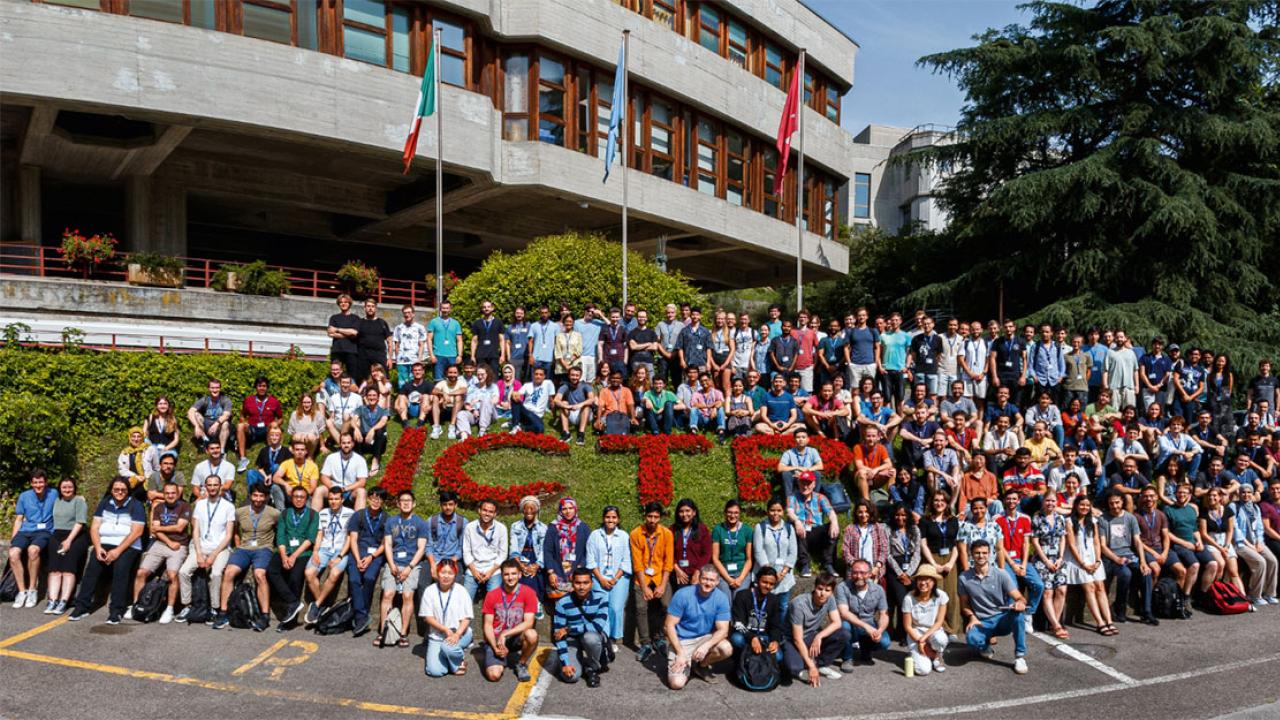
International participants gathered at ICTP for two weeks in June to attend the centre's High Energy, Cosmology and Astroparticle Physics (HECAP) section's yearly Summer School co-sponsored by the National Institute for Nuclear Physics (INFN), which this year focused on particle physics. Researchers from Caltech, CERN and the Universities of Goettingen, Oxford, Durham and Maryland each gave a series of lectures on topics ranging from the Standard Model to the Physics of Dark Sectors, providing students with a deep insight into various aspects of particle physics.
Each lecture series expanded on a particular theme over several sessions. “These summer schools are usually organised into courses that involve multiple lectures,” says Giovanni Villadoro, local organiser and research scientist at HECAP. “In this way it is possible to give in-depth teaching on a subject.” Although the majority of the participants are PhD students, there are also a number of advanced MSc students and junior post-docs in attendance.
The workshop involved 180 participants from roughly 50 different countries.
The workshop kicked off with a foundation course on the Standard Model taught by Timothy Cohen from CERN and EPFL, which was used as a building block for the rest of the school. This is a basic course on the theory, which describes all known fundamental interactions of nature. The present limitations of our knowledge were discussed, providing the basis for the other courses.
Lectures on QCD at colliders were given by Richard Keith Ellis from Durham University, who won the 2019 Institute of Physics Paul Dirac Medal for his work in quantum chromodynamics (QCD). Ellis performed many of the key calculations that led to the acceptance of QCD as the correct theory for strong interactions.
“QCD is the theory of strong interactions that governs the dynamics of particles in high-energy colliders, the machines currently used to probe the constituents of particles and interactions,” adds Villadoro. “Understanding the details of such a theory, and the tools required to make precise predictions using it, is a crucial ingredient in extracting meaningful answers from experiments.”
Marko Simonovic from CERN taught a course covering the basics of Cosmology, which is increasingly used in high-energy particle physics to constrain, test and probe new ideas related to extensions of the Standard Model.
The Beyond the Standard Model series was provided by Raman Sundrum, of the University of Maryland, who won the American Physical Society’s 2019 J. J. Sakurai Prize for Theoretical Particle Physics “for creative contributions to physics beyond the Standard Model, in particular the discovery that warped extra dimensions of space can solve the hierarchy puzzle, which has had a tremendous impact on searches at the Large Hadron Collider." The lecture course surveys possible ideas for extending the standard model at shorter distances, and addresses open issues related to our understanding of fundamental forces.
Lectures on Dark Matter were taught by Laura Covi from the University of Gottingen. Dark matter constitutes the main form of matter in the universe that is not explained by the standard model. This course explored what is known and still unknown about this form of matter, and possible old and new ideas that could explain it.
Physics of Dark Sectors lectures given by John March-Russell from the University of Oxford covered possible new forces and matter that are very weakly coupled to ordinary matter (and so, they appear to be dark), but could have important implications for the phenomenology of particles, cosmology and astrophysics.
A more formally oriented course on Amplitudes and EFT Techniques was given by Clifford Cheung from Caltech, which provided an overview of everything from modern techniques to computed particle interactions.
















